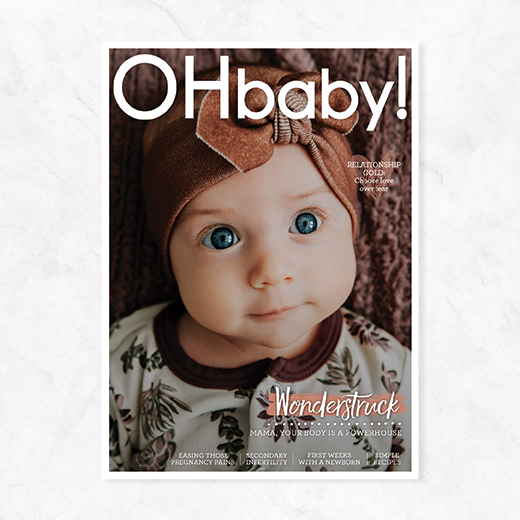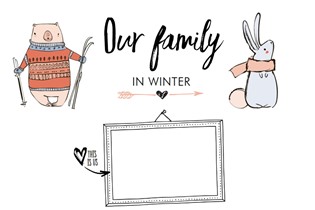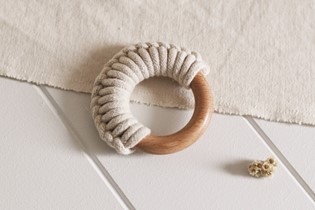Praising kids: hot air or powerful parenting?

Is praise just a whole lot of hot air, or are warm fuzzies a powerful parenting tool? Psychologist Dr Melanie Woodfield examines the kudos of commendation.
There are some unruly members of the parenting family. ‘Time-out’ is known for stirring up strong feelings. ‘Ignoring’ is also a bit controversial at times. But praise? Surely praise is the golden child of parenting strategies, adored by all? Alas, poor old praise has also been stirring the pot of opinion. Some say praising children is worthless, unnecessary and makes them soft. Others reckon that praising children builds their self-esteem, adds warmth to the relationship and can improve behaviour. Two very different – and big – opinions about one small parenting strategy. What to believe?
First, let’s be clear on what we mean by praise: it’s a positive statement about the child themselves or in relation to their behaviour, regarding their outputs or achievements. As we’ll see, all praise is not created equal. Technically, praise is also known as a positive statement that results in a particular action increasing in frequency – a reinforcer of behaviour. If we get a lot of compliments every time we wear a particular outfit to kindy drop-off, we’re more likely (consciously or unconsciously) to wear it more often.
One of my son’s teachers (who was in her golden years) once said to me “You wear such different clothes. They wouldn’t work for me, but I think they suit you”. Technically it’s praise, but I wasn’t too sure how to take it. When it comes to praise, it’s often not about the technique itself, but about how it is used.
Any relational technique can be unhelpful if it’s unclear, not genuine, or over-used. Think of an insincere and condescending “I just love your daughter’s lisp, it’s so cute!”. This even applies to a superstar strategy like validation: if we validated each other’s feelings, but lacked genuineness and warmth, it would be frustrating and unhelpful. It’s the same with time-out, which needs to be used occasionally, calmly and thoughtfully – not reactively, angrily and harshly. And praise is in the same boat. If we use it well, it’s powerful. Here we’ll look at ways in which we can turbo charge it, and also guard against some of the critiques.
PUPPETS ON A STRING?
One criticism of praise is that it makes children soft. Another is that by providing external ‘manipulation’ of a child’s behaviour, they’re less able to be self-motivated and independent, and will act in certain ways to please the parent or teacher, rather than from their own volition.
Praise can be used to manipulate others. Imagine deliberately and repeatedly praising your friend’s scented candle in the lead-up to your birthday. Yep, you’re more likely to be gifted that same candle. Clearly the intention of your compliments was to control or manipulate your friend’s behaviour for your own wellbeing.
However, a parent praising a child usually serves a very different function. Parents are usually praising to shape their child’s behaviour for their child’s wellbeing. To learn, develop and grow we need feedback from others. One of our roles as parents is to shape and influence our children. This happens in many ways – some direct, some indirect. Even those who oppose praising children agree that some amount of feedback, correction and redirection is needed. The disagreement is often around how this is done.
There is also a concern from some that praise is judgemental, for example praising a play dough creation might lead to a child making art to seek their parent’s approval, rather than creating simply for the satisfaction of creating. To guard against this, rather than gushing over the final product, we can instead praise their effort, or describe how the child went about constructing. “You used all the colours and made it strong so it will last” versus “That’s an amazing tower”.
We can also respond differently to different behaviour. If it’s important to a child’s safety, or their ability to connect to others, then praising the behaviour is likely to outweigh any fears about judging or evaluating their behaviour. Noticing ‘gentle hands’ when a child has a history of hitting kids at preschool, or praising them for remembering to wait to cross the road are clearly helpful things to do. You’re reinforcing behaviour that will make your child safer and more connected to others.

WARM FUZZIES
Praise is incredibly important for warmth and connection in a parent-child relationship. In fact, it’s important in most relationships. A boss who never says “Well done on that report”, or “Your contribution to meetings is really helpful”, or “You packed that carton well” is less fun to work for. And a partner who says “Yummy dinner, thanks” and “You’re awesome with the kids” is much more likely to be forgiven for leaving toenail clippings on the bed.
Research shows that parents tend to like to praise because it makes them feel good about themselves and about their parenting. Children also tend to like being praised, even if they do sometimes appear to shrug it off or tell you to stop.
Speaking of research, there’s no ultimate or right amount of praise to be giving. Studies have suggested that high-performing corporate teams tend to give each other five to six praise statements for every corrective or negative statement. And it’s true that having more praise or positive statements than corrective or negative is useful for a warm relationship. But whatever the ratio, the ultimate goal is to have a rich mix of unconditional expressions of affection (short, daily, child-led playtime together, or hugs for no reason) along with some more conditional affection expressions – like praising a child for doing what they were asked.
CULTURAL (DIS)COMFORT
It’s important to note that we all do things differently around this great big world of ours. And parenting behaviour has changed over time. It makes sense that particular cultures, and particular generations of parents, might have strong feelings about what children need, and how best to meet these needs.
In some cultures, providing your child with feedback to correct their behaviour, and then staying silent when they achieve, is the ideal. Praising a child’s effort is seen as not necessary, in fact it’s thought to make them complacent or soft. Parenting this way often comes from a place of genuinely wanting the child to do well, and seeing this as the best way to support them.
If you’ve been raised like this, praising your child might feel awkward and uncomfortable. But if you’re interested, maybe try a little experiment – try dropping in some regular praise statements, and look for the effect of these. You might feel more comfortable at first with praising your child’s efforts, eg “Well done for trying hard to solve that”. Also, don’t be put off if your child looks at you strangely, or even comments on how you’re “Talking funny”. Some children will even say “Stop talking like that” if you phrase things in ways they’re not used to. Because the phrasing is unfamiliar, they might think you don’t mean what you say. Gentle persistence should encourage them that you mean it, but maybe try shorter or more direct praise, things like “Good sharing”, rather than “I love seeing how you’re sharing your toys with Charlotte, you’re such a kind and generous girl”.
If you’re willing to give praise a go, chances are you’ll notice an increase in the frequency of the behaviour you’re praising, and your relationship with your child could even feel warmer and more positive.
|
TOP TIPS FOR POWERFUL PRAISE
HELPFUL ☙ Constructive and descriptive praise, used thoughtfully. ☙ Upping the praise when you feel as though your relationship with your child has been worn down, maybe by their challenging behaviour or lots of stress in the family. ☙ Praising effort rather than achievement. Effort is mostly within your child’s control, whereas achievement is often less controllable. So, “I’m so happy you made it through that book!” rather than “You’re the cleverest girl ever”. ☙ With little ones, it’s useful to provide more specifics so they know what you’re praising. Think ‘little and often’ with regards to praise statements, eg “Great sitting”, “Nice sharing” and “Thanks for asking nicely”. ☙ Older children can make more inferences, and have a better understanding of what you’re referring to. If you say “Awesome” after they asked politely, they’re more likely to connect the dots. ☙ Sometimes words aren’t even necessary – a thumbs up and a smile to a five-year-old who made it to the top of the ladder can say it all.
LESS HELPFUL ☙ Lots of unlabelled praise statements used willy-nilly, eg “Wow” and “Awesome”. Some of this is fine, but to turbo charge it, turn it into labelled praise, such as “Awesome work getting your things ready for kindy”. ☙ Lots of “You’re so cute!”, “You’re adorable!” or “You’re the best artist in the class!” A sprinkling is lovely, but too much – not so much.
Parenting well involves both the head and the heart. We’re not robots who compute the best strategy and dispense it accordingly. Parenting involves our instincts and intuition, input from supportive people, staying true to our cultural or spiritual values, and responding to our children’s individual needs. Rather than what others tell you to do, what you read online, or what you think you should be doing, do what your instincts tell you your child (and your relationship with your child) needs. As we’ve seen, praise is surprisingly controversial, but the technique itself is sound – it’s how it’s used that matters. If you’re not usually a fan of praise, maybe try it out for size. See how you feel. And after you’ve intentionally praised your child or what they did, watch for that little smile – it says it all really. |
Dr Melanie Woodfield is a child and adolescent clinical psychologist and researcher in Auckland, and is a mum to two boys. She hadn’t realised her clothes were ‘different’ until she was ‘complimented’ for it.

AS FEATURED IN ISSUE 46 OF OHbaby! MAGAZINE. CHECK OUT OTHER ARTICLES IN THIS ISSUE BELOW

















